
Fourth Genre-Explorations in Nonfiction
Scope & Guideline
Elevating Nonfiction: Where Creativity Meets Scholarship
Introduction
Aims and Scopes
- Creative Nonfiction and Literary Essays:
The journal emphasizes the art of creative nonfiction, showcasing works that blend narrative storytelling with factual content, enabling authors to express personal and cultural experiences. - Cultural and Social Commentary:
Papers often delve into social issues, cultural reflections, and personal narratives that address contemporary topics, fostering a dialogue around identity, memory, and societal challenges. - Exploration of Form and Structure:
A significant focus is on the experimentation with the form and structure of nonfiction, encouraging writers to push boundaries and explore unique narrative techniques. - Interdisciplinary Approaches:
The journal welcomes interdisciplinary works that draw from various fields such as history, sociology, psychology, and the arts, enriching the discourse within nonfiction writing. - Critical Essays on Nonfiction Craft:
In addition to creative works, the journal includes critical essays that analyze the craft of nonfiction writing, offering insights into techniques, challenges, and the evolution of the genre.
Trending and Emerging
- Intersectionality and Identity Politics:
There is an increasing focus on themes of intersectionality, exploring how various aspects of identity—including race, gender, and sexuality—interact and influence personal narratives. - Trauma and Healing Narratives:
Papers addressing trauma, mental health, and the process of healing through storytelling have gained prominence, highlighting the therapeutic potential of creative nonfiction. - Environmental and Ecological Themes:
An emerging trend involves narratives that engage with environmental issues, reflecting a growing concern for ecological sustainability and the human relationship with nature. - Digital and Multimedia Nonfiction:
The journal is beginning to explore how digital platforms and multimedia elements can enhance nonfiction storytelling, indicating a trend towards integrating technology with narrative forms. - Global Perspectives and Voices:
There is a notable increase in works that provide global perspectives, showcasing diverse voices and experiences from various cultures, which enrich the journal's offerings and broaden its appeal.
Declining or Waning
- Traditional Memoir Structures:
There is a noticeable decline in conventional memoirs that adhere strictly to chronological storytelling, as the journal increasingly favors innovative narrative forms and fragmented storytelling. - Purely Academic Nonfiction:
The focus on strictly academic essays or research-heavy nonfiction seems to be waning, with a stronger preference for personal narratives that blend academic insights with creative storytelling. - Historical Nonfiction without Personal Lens:
While historical themes remain relevant, there is a decreasing emphasis on purely historical accounts that lack personal engagement or narrative flair, reflecting a shift towards more subjective interpretations of history. - Standard Journalistic Nonfiction:
Traditional journalistic approaches to nonfiction writing, characterized by objective reporting and fact-based narratives, appear less frequently, as the journal leans towards subjective interpretations and creative explorations.
Similar Journals
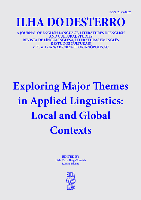
Ilha do Desterro-A Journal of English Language Literatures in English and Cultural Studies
Championing Open Access to Literary ScholarshipIlha do Desterro: A Journal of English Language Literatures in English and Cultural Studies, published by the Universidade Federal de Santa Catarina, is a prestigious open-access journal that has been contributing to the fields of literature and cultural studies since 1979. With an ISSN of 0101-4846 and E-ISSN 2175-8026, it has solidified its role as a significant platform for scholars seeking to explore the intricate relationship between English literatures and cultural phenomena. Recognized in the Q2 quartile for Literature and Literary Theory and ranked 370 out of 1106 in the Scopus index (66th percentile), Ilha do Desterro fosters an inclusive environment for research and dialogue, encouraging contributions that examine diverse literary landscapes through various critical lenses. With its commitment to open access, the journal ensures that the findings and discussions within are readily available to researchers, professionals, and students worldwide, enriching the academic discourse in English studies and beyond.
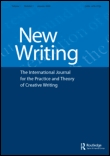
New Writing-The International Journal for the Practice and Theory of Creative Writing
Celebrating Two Decades of Creative Writing ExcellenceNew Writing - The International Journal for the Practice and Theory of Creative Writing, published by Routledge Journals, Taylor & Francis Ltd, stands as a premier academic platform dedicated to exploring the intricate intersections of creative writing theory and practice. With an impressive impact factor reflecting its scholarly rigor and a prestigious Q1 ranking in the field of Literature and Literary Theory, this journal serves as a vital resource for researchers, professionals, and students alike. Covering a breadth of topics from innovative writing techniques to critical literary analysis, New Writing encourages the exploration of both emerging voices and established practices within the discipline. As it converges towards its 20th anniversary in 2024, the journal remains committed to fostering a dynamic discourse that enhances the global understanding of creative writing. Although it does not offer open access, its contributions are highly regarded in the academic community, making it an essential read for those looking to deepen their knowledge and engage with contemporary debates in creative writing.

GEORGIA REVIEW
Crafting Connections Through Creative Writing.Georgia Review is a distinguished literary journal published by the University of Georgia, renowned for its commitment to showcasing a diverse array of creative writing, including poetry, fiction, and essays. With its ISSN number 0016-8386, the journal has fostered a vibrant community of writers and scholars since its inception, offering a platform for emerging and established voices alike. Although the journal's coverage in Scopus was discontinued in 2012, its influence within the literary field remains significant, bolstered by a rich tradition of insightful commentary and cultural critique reflective of contemporary issues. Access to the journal is available through traditional subscription models, making it a valuable resource for researchers, students, and literary enthusiasts aiming to explore the intersections of literature and society. The Georgia Review stands out for its rigorous editorial standards and its role in advancing the appreciation of the literary arts, cementing its importance within the landscape of American literary journals.

SOUTHERN HUMANITIES REVIEW
Advancing Understanding in an Ever-Changing WorldSOUTHERN HUMANITIES REVIEW, published by Auburn University, is a vital academic platform dedicated to the exploration and critique of diverse topics within the *Arts and Humanities*. Established in 1967, this journal serves as a conduit for innovative thought and scholarly dialogue, making it a significant contributor to its field despite its current ranking in the fourth quartile according to the 2023 Scopus categorization. With its ISSN 0038-4186 and E-ISSN 0038-4186, the journal has been a consistent publisher of scholarly articles from 2002 to 2016 and continues with its mission until 2024. Though it is not an Open Access journal, it offers valuable insights and peer-reviewed research that appeal to researchers, professionals, and students alike. The Southern Humanities Review remains committed to fostering a deeper understanding of the human experience, reflecting the complexities of cultural discourse in an ever-changing world. Researchers and practitioners will find it an enriching resource for contemporary humanities scholarship.

NEW ORLEANS REVIEW
Illuminating Contemporary Culture Through LiteratureNEW ORLEANS REVIEW is a distinguished literary journal published by Loyola University that captures the essence of creativity and critical discourse in the realms of literature and the arts. Issued under the ISSN 0028-6400, this journal provides a platform for both emerging and established voices, fostering a rich dialogue among researchers and practitioners in the field. Through works that span various genres, NEW ORLEANS REVIEW not only contributes to the academic landscape but also engages with contemporary cultural narratives and social issues, making it an invaluable resource for scholars, students, and professionals alike. While access is not open, the journal's curated content and extensive insights into literary and visual arts merit attention within the competitive ranks of arts and humanities. Although it has been indexed in Scopus from 2002 to 2014 and has a varied impact reflected in its ranking percentile, its commitment to quality and innovative thinking remains steadfast, inviting critical engagement from its dedicated readership.
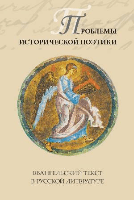
Problemy Istoricheskoi Poetiki
Innovating Insights in Literary Theory and PracticeProblemy Istoricheskoi Poetiki is a leading academic journal in the field of Literature and Literary Theory, published by PETROZAVODSK STATE UNIVERSITY since 1990. With an impact factor that places it in the Q1 category for 2023, this journal is distinguished for its scholarly contributions, ranked #169 out of 1106 in the Scopus Arts and Humanities category, which positions it in the 84th percentile. Focused on advancing the understanding of historical poetics, the journal encourages rigorous research and offers Open Access to its published works, ensuring the dissemination of knowledge across borders, while fostering collaboration among scholars globally. The editorial board is committed to publishing innovative and insightful articles that address crucial themes in literary history, theory, and interpretation, making it an essential resource for researchers, professionals, and students alike. The journal's harmonious convergence of traditional literary studies with contemporary analytical approaches makes it a vital platform for exploring the dynamics of literature within its historical contexts.

SHENANDOAH
Illuminating the Ties Between Culture and EnvironmentSHENANDOAH is a prestigious journal published by Washington Lee University, focusing on the rich tapestry of American literature, culture, and environmental studies. With its ISSN 0037-3583, this journal has served as a vital platform for the dissemination of scholarly research from 2002 to 2010 and again in 2012, although it has since discontinued its coverage in Scopus. The journal's commitment to exploring the intersections between literary expression and ecological awareness fosters a unique dialogue among researchers, professionals, and students interested in the human experience in relation to the natural world. By engaging with a diverse range of topics, SHENANDOAH not only enriches academic discourse but also invites contributions that illuminate the dynamic interplay between culture and environment. This makes it an essential resource for anyone looking to deepen their understanding of American studies and ecological literature.

Tintas-Quaderni di Letterature Iberiche e Iberoamericane
Illuminating Cultural Identities through Literary ExplorationTintas-Quaderni di Letterature Iberiche e Iberoamericane is a distinguished open-access journal published by Milano University Press, dedicated to advancing the fields of Iberian and Ibero-American literature studies. Since its inception in 2011, this journal has provided a vital platform for researchers, scholars, and students to explore a broad spectrum of literary themes, cultural identities, and linguistic nuances across the Iberian Peninsula and Latin America. Located in the heart of Milan, Italy, Tintas aims to foster intellectual discourse and encourages submissions that contribute to the understanding of both historical and contemporary literary landscapes. With its commitment to open access, the journal ensures that its rich repository of knowledge is readily available to a global audience, making it an essential resource for anyone engaged in the study of literature in these regions.
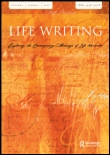
Life Writing
Celebrating the Voices of Personal and Collective StoriesLife Writing, published by Routledge Journals, Taylor & Francis Ltd, is a prestigious academic journal dedicated to the field of Literature and Literary Theory. With an impressive impact factor and listed in the top quartile (Q1) of its category, it ranks #91 out of 1106 in the Scopus database, placing it in the 91st percentile – a testament to its significant influence and reach within the academic community. Since its inception in 2004, Life Writing has provided a vital platform for scholars and practitioners to explore the nuances of life writing across various genres and cultures. The journal emphasizes critical and theoretical approaches while promoting innovative research, making it an essential resource for researchers, professionals, and students alike. With a commitment to advancing the discourse on autobiographical narratives, memoirs, and biographies, Life Writing fosters a rich, interdisciplinary dialogue that is crucial for understanding personal and collective identities in contemporary literature.
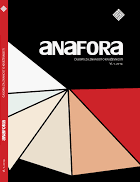
Anafora
Unveiling diverse perspectives in communication and literature.Anafora is an essential open-access journal published by the University of Osijek, Faculty of Humanities & Social Sciences, contributing to the dynamic fields of Communication, Cultural Studies, and Literature and Literary Theory. Since its inception in 2014, the journal has committed itself to disseminating innovative research and critical analysis, attracting a diverse array of scholars and practitioners from across the globe. Based in Croatia, Anafora's content is accessible to all, fostering inclusivity and collaboration within academia. While the journal currently holds a Q4 ranking in both Communication and Cultural Studies, and a Q3 in Literature and Literary Theory as of 2023, its growth trajectory indicates a promising future for the contributions it gathers. Researchers, students, and professionals alike are encouraged to engage with this platform to explore the multifaceted aspects of human expression and cultural discourse, thereby enriching the scholarly conversation within these pivotal domains.